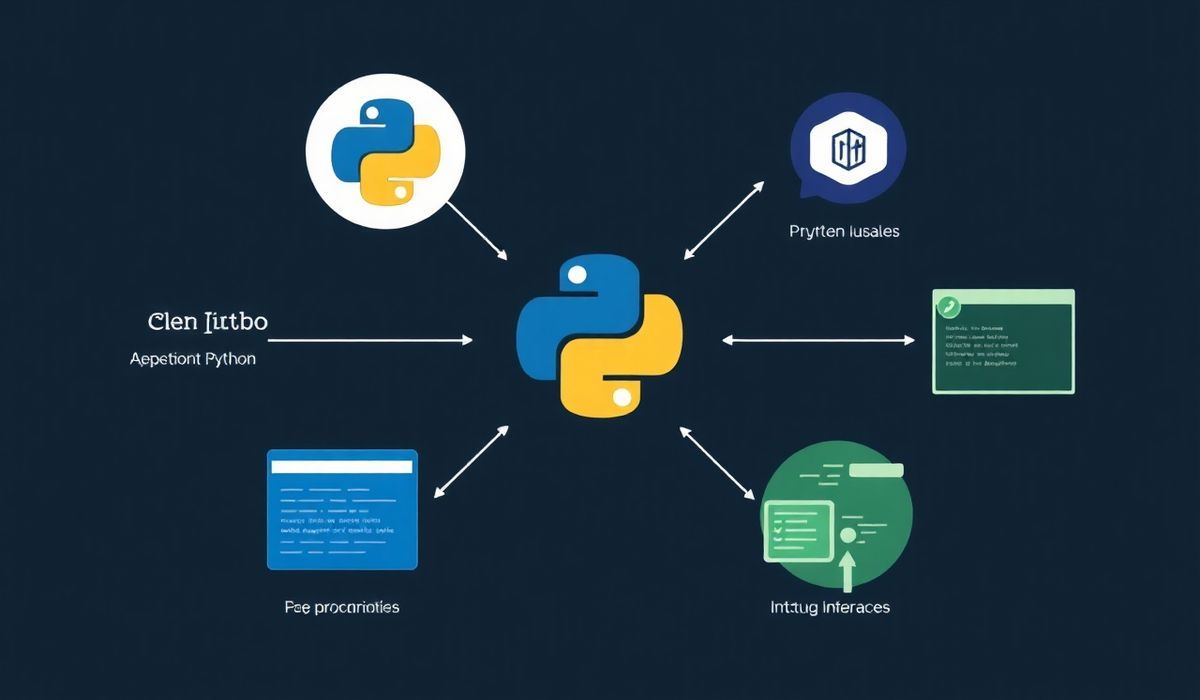Introduction to absl-py: A Feature-Rich Python Library
Absl-py, a library developed by Google, is a powerful extension suite for Python that provides utilities for robust and scalable application development. It includes tools for command-line argument parsing, logging, testing utilities, and much more. Whether you are building a small script or a large-scale enterprise application, absl-py makes your development workflow efficient and structured.
Why Use Absl-py?
- Simple and extensible command-line argument parsing.
- Enhanced logging and debugging tools.
- Utility libraries for testing and common programming patterns.
- Scalable for large projects with a structured app design model.
Core Features and APIs of Absl-py
1. Command-line Argument Parsing (absl.flags)
The absl.flags library is highly flexible for handling command-line arguments in Python.
from absl import app, flags
FLAGS = flags.FLAGS
flags.DEFINE_string('name', 'World', 'Name of the user.')
flags.DEFINE_integer('count', 1, 'Number of greetings.')
def main(argv):
for _ in range(FLAGS.count):
print(f"Hello, {FLAGS.name}!")
if __name__ == '__main__':
app.run(main)
This code snippet introduces command-line flags --name and --count, allowing users to customize the program’s behavior.
2. Logging with absl.logging
Absl-py comes with a structured logging framework, which makes it easy to log messages and debug potential issues.
from absl import logging
def process_data(data):
if not data:
logging.error("Data is empty. Exiting process.")
return
logging.info("Processing data...")
logging.debug(f"Data content: {data}")
# Process logic
3. Testing Utilities (absl.testing)
Testing is a critical part of application development, and absl.testing offers utilities to streamline the process.
from absl.testing import absltest
class MyTestCase(absltest.TestCase):
def test_addition(self):
self.assertEqual(1 + 1, 2)
def test_subtraction(self):
self.assertNotEqual(2 - 1, 3)
if __name__ == '__main__':
absltest.main()
4. App Framework
Using the application wrapper provided by absl.app, you can define structured startup behavior for your program.
from absl import app
def main(argv):
print("App framework example.")
print(f"Got arguments: {argv[1:]}")
if __name__ == '__main__':
app.run(main)
Complete Application Example Using Absl-py
Here’s an example that combines multiple APIs of absl-py into one coherent application:
from absl import app, flags, logging
FLAGS = flags.FLAGS
flags.DEFINE_string('user', 'World', 'Name of the user.')
flags.DEFINE_integer('verbosity', 1, 'Verbosity level for logging.')
flags.DEFINE_integer('count', 1, 'Number of greetings.')
def main(argv):
logging.set_verbosity(FLAGS.verbosity)
for _ in range(FLAGS.count):
logging.info(f"Greeting user: {FLAGS.user}")
print(f"Hello, {FLAGS.user}!")
if __name__ == '__main__':
app.run(main)
In this application, we integrate command-line flag parsing, logging, and the app framework to deliver a complete, structured Python solution.
Conclusion
Absl-py is a versatile and efficient library that can simplify various Python programming tasks, from command-line parsing to testing and logging. The examples provided here should help you integrate and utilize the library features effectively.




